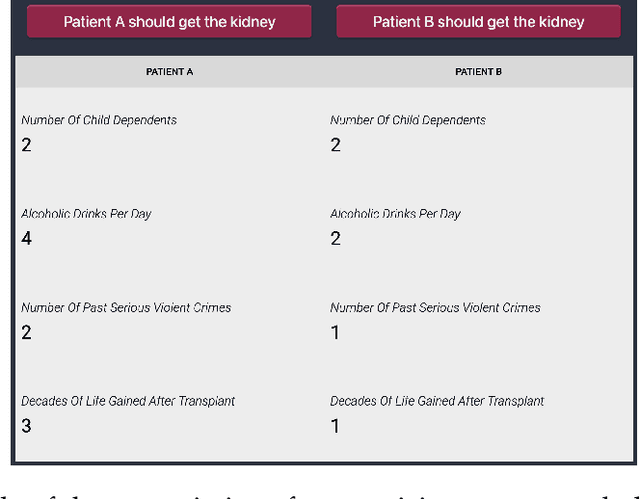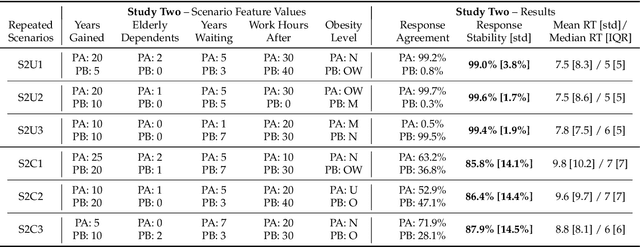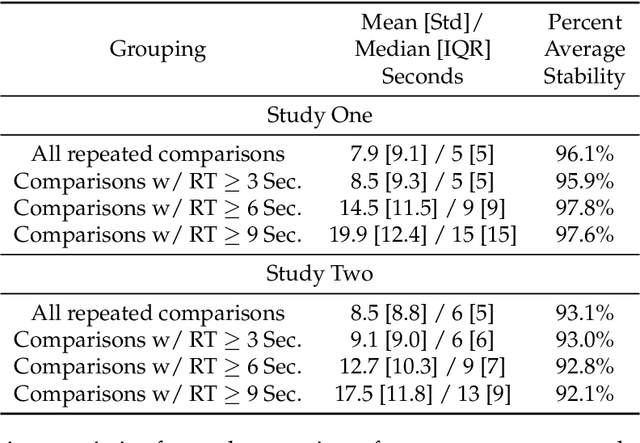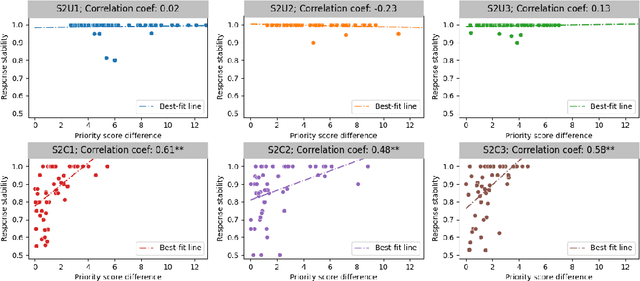Kyle Boerstler
On The Stability of Moral Preferences: A Problem with Computational Elicitation Methods
Aug 05, 2024



Abstract:Preference elicitation frameworks feature heavily in the research on participatory ethical AI tools and provide a viable mechanism to enquire and incorporate the moral values of various stakeholders. As part of the elicitation process, surveys about moral preferences, opinions, and judgments are typically administered only once to each participant. This methodological practice is reasonable if participants' responses are stable over time such that, all other relevant factors being held constant, their responses today will be the same as their responses to the same questions at a later time. However, we do not know how often that is the case. It is possible that participants' true moral preferences change, are subject to temporary moods or whims, or are influenced by environmental factors we don't track. If participants' moral responses are unstable in such ways, it would raise important methodological and theoretical issues for how participants' true moral preferences, opinions, and judgments can be ascertained. We address this possibility here by asking the same survey participants the same moral questions about which patient should receive a kidney when only one is available ten times in ten different sessions over two weeks, varying only presentation order across sessions. We measured how often participants gave different responses to simple (Study One) and more complicated (Study Two) repeated scenarios. On average, the fraction of times participants changed their responses to controversial scenarios was around 10-18% across studies, and this instability is observed to have positive associations with response time and decision-making difficulty. We discuss the implications of these results for the efficacy of moral preference elicitation, highlighting the role of response instability in causing value misalignment between stakeholders and AI tools trained on their moral judgments.
Towards Stable Preferences for Stakeholder-aligned Machine Learning
Feb 02, 2024

Abstract:In response to the pressing challenge of kidney allocation, characterized by growing demands for organs, this research sets out to develop a data-driven solution to this problem, which also incorporates stakeholder values. The primary objective of this study is to create a method for learning both individual and group-level preferences pertaining to kidney allocations. Drawing upon data from the 'Pairwise Kidney Patient Online Survey.' Leveraging two distinct datasets and evaluating across three levels - Individual, Group and Stability - we employ machine learning classifiers assessed through several metrics. The Individual level model predicts individual participant preferences, the Group level model aggregates preferences across participants, and the Stability level model, an extension of the Group level, evaluates the stability of these preferences over time. By incorporating stakeholder preferences into the kidney allocation process, we aspire to advance the ethical dimensions of organ transplantation, contributing to more transparent and equitable practices while promoting the integration of moral values into algorithmic decision-making.
 Add to Chrome
Add to Chrome Add to Firefox
Add to Firefox Add to Edge
Add to Edge